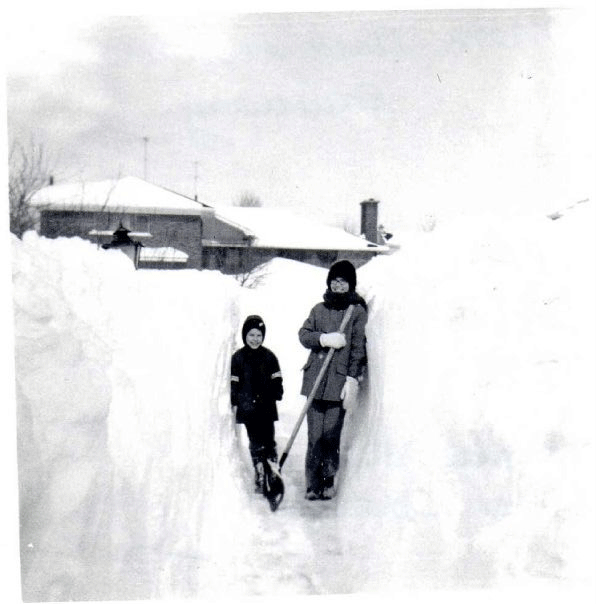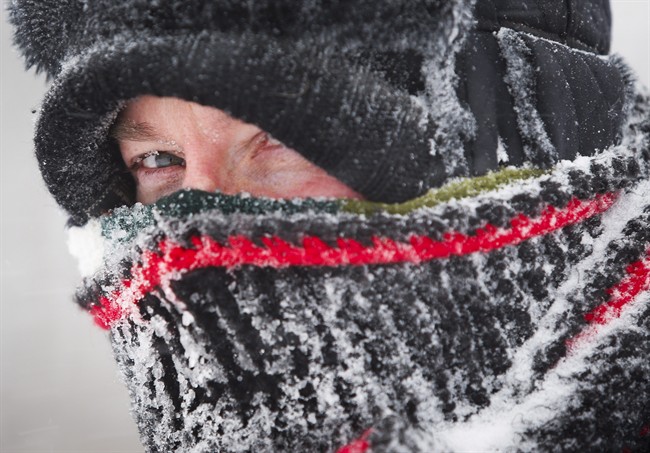TORONTO – “When I was a kid, we had snow that was as tall as our house.”

Tired of hearing something similar from your parents? Well, the truth is, they’re kind of right: winter used to be worse.
The snowbanks that would tower over their cars, or the snowstorms that they’d walk through (uphill, both ways) to get to school is something of an exaggeration, of course.
Though it may feel like the coldest winter in ages, it’s just that our winter has been spoiling us over the past few years: Last year the national average temperature was 1.6 C above the baseline average (1961-1990); it was also the third driest (17 per cent drier than the average). The warmest winter on record was just four winters earlier, in 2009-2010 when the national average was 4.1 C above the baseline.
So it turns out we may all be suffering from winter amnesia.

READ MORE: Another cool winter phenomenon: snow rollers
“Most people, they just remember last year or the year before and that’s their horizon,” David Phillips, senior climatologist with Environment Canada told Global News.
Winter in the days of our parents or grandparents were definitely colder than they are today.
“There is no question about it: Canada is warmer now… Our winters on average, about in the last 60 some years, have warmed up about three degrees. And that, for climate, is really a huge change.”
“So when you get a throwback to something that is of our youth, well then, people think that it’s really unusual.”
And there’s no promising that this winter won’t be duplicated again next winter. Climatic variability is just part of the package. Next year could be just as cold…or not.
Not all of Canada is the same
The deep freeze hasn’t affected all of Canada, just a large portion of it.
“In the Northwest Territories, they’ve had some very warm temperatures,” Phillips said. “It’s been warmer in Yellowknife than it has been in Toronto sometimes. So not everybody is behaving in the same way.
“But there’s a huge chunk of Canada, from Saskatchewan eastward, where most Canadians live, that have seen some unusually cold winter conditions…This would be more average back in the ’70s and early ’80s and ’60s. It’s just the fact that we’re out of practice. We’re not used to it; we’ve seen so many mild winters.”
READ MORE: Polar vortex: The unwanted winter guest who refuses to leave
And what about Canada’s reputation as being “The Great White North”?
“We have this reputation of the Great White North and the second coldest country in the world, and we go around to people saying, ‘Cold enough for you?’ Yet when we’re faced with it, we feel like we’re being done in,” Phillips said.
But it’s our lifestyle that may be contributing to our struggle with the cold. Back in the 1960s or 1970s, there wasn’t the rush hour commute to deal with that there is today; people worked closer to home; most women were still at home, and there was no rush to daycares.”
“I think that in many ways we’re more vulnerable to these conditions than we were in the past,” said Phillips.
And, snow days? They may be more common today than they once were, but maybe that’s because there were consequences.
“In the real old days, you never had snow days because you had to go back on Saturday to make up your day,” said Phillips.
Imagine telling kids today that they had to make up classroom time.
As for the February forecast? “It looks like more of the same,” Phillips said.
Now, buck up and take it like a Canadian.





Comments